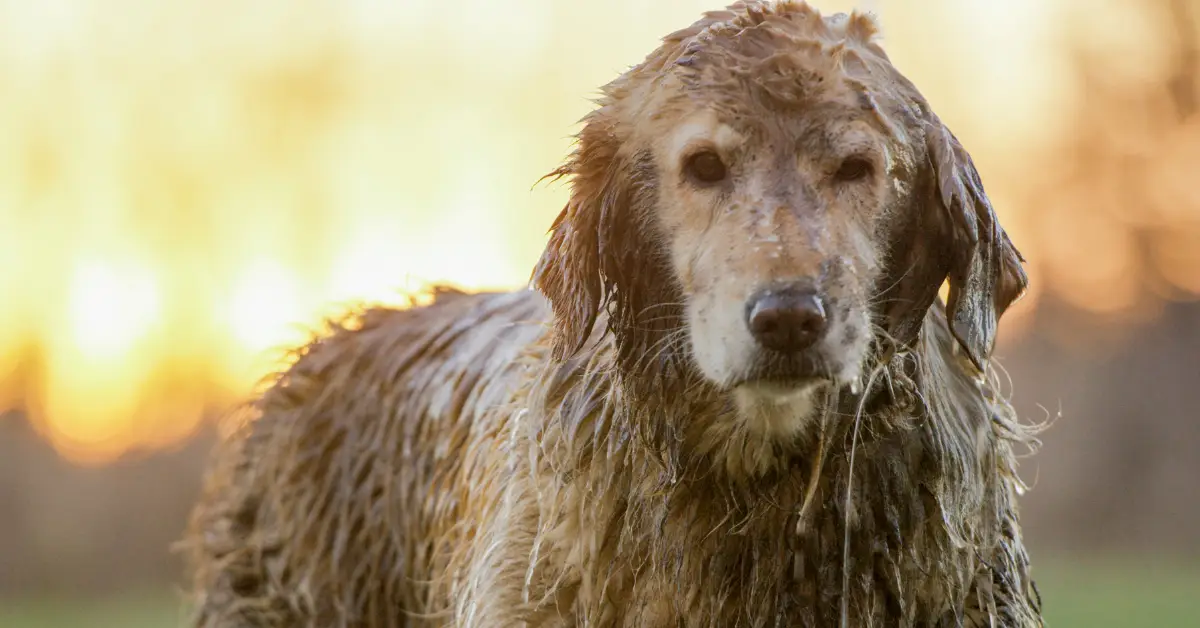Warmer weather is here, bringing with it plenty of opportunities for outdoor adventures with our furry friends. Whether it’s a trip to the beach, a hike through the woods, or just a romp in the backyard sprinkler, dogs love to get wet during the hot months. However, one common and less pleasant aspect of these activities is the infamous “wet dog smell.” This distinctive odor can quickly fill a room and linger long after your dog has dried off. In this blog post, we’ll explore the science behind wet dog smell, why it seems more potent in warmer weather, and how to manage it effectively.
What Causes Wet Dog Smell?
Wet dog smell originates from a combination of factors:- Microorganisms: Dogs have natural bacteria and yeast living on their skin and fur. When a dog gets wet, the water displaces these microorganisms, causing them to release volatile compounds that create the characteristic odor.
- Natural Oils: Dogs’ skin produces natural oils that help protect and moisturize their fur. These oils can also trap dirt and bacteria, which are released when the fur gets wet.
- Environmental Factors: Dirt, pollen, and other environmental elements can get trapped in a dog’s coat. When wet, these particles can contribute to the overall smell.
Why Does Wet Dog Smell Intensify inWarmer Weather?
During warmer weather, several factors amplify the wet dog smell:- Heat and Humidity: Higher temperatures and humidity levels create an ideal environment for bacteria and yeast to thrive. This increases the number of microorganisms on your dog’s skin, leading to a stronger odor when wet.
- More Frequent Water Exposure: Dogs are more likely to swim, play in sprinklers, or encounter rain during warmner weahter, increasing the frequency of wet dog smell episodes.
- Increased Shedding: Many dogs shed more in warmer weather, and the loose fur can trap more dirt and bacteria, enhancing the odor when it gets wet.
Managing Wet Dog Smell
Fortunately, there are several strategies to manage and minimize wet dog smell:- Regular Grooming: Regular brushing helps remove loose fur, dirt, and bacteria from your dog’s coat. Consider using a de-shedding tool during peak shedding periods to reduce the amount of fur that can trap odor-causing particles.
- Frequent Baths: Bathing your dog regularly with a high-quality dog shampoo can help keep their coat clean and reduce the buildup of oils and bacteria. Be sure to dry your dog thoroughly after a bath to prevent the lingering dampness that can exacerbate odors.
- Proper Drying: After your dog gets wet, whether from a bath or a swim, make sure to dry them completely. Use a towel or a pet-safe hairdryer on a low heat setting to ensure their fur is thoroughly dry.
- Ear Care: Moisture can get trapped in a dog’s ears, leading to ear infections and additional odors. Clean your dog’s ears regularly with a vet-approved ear cleaner to prevent this.
- Diet and Health: A balanced diet and good overall health can improve your dog’s skin and coat condition, reducing the likelihood of strong odors. Consult with your veterinarian to ensure your dog is getting the right nutrients.
Home Remedies for Wet Dog Smell
If you’re looking for natural ways to combat wet dog smell, consider these home remedies:- Vinegar Rinse: After bathing, rinse your dog with a mixture of one part vinegar to three parts water. Vinegar can help neutralize odors and has antibacterial properties.
- Baking Soda: Sprinkle baking soda on your dog’s dry coat and brush it through before a bath. Baking soda can help absorb odors and remove dirt.
- Essential Oils: Certain essential oils, like lavender or eucalyptus, have natural deodorizing properties. Add a few drops to your dog’s shampoo or dilute with water and spray lightly on their coat. Always ensure that the oils are safe for pets.


